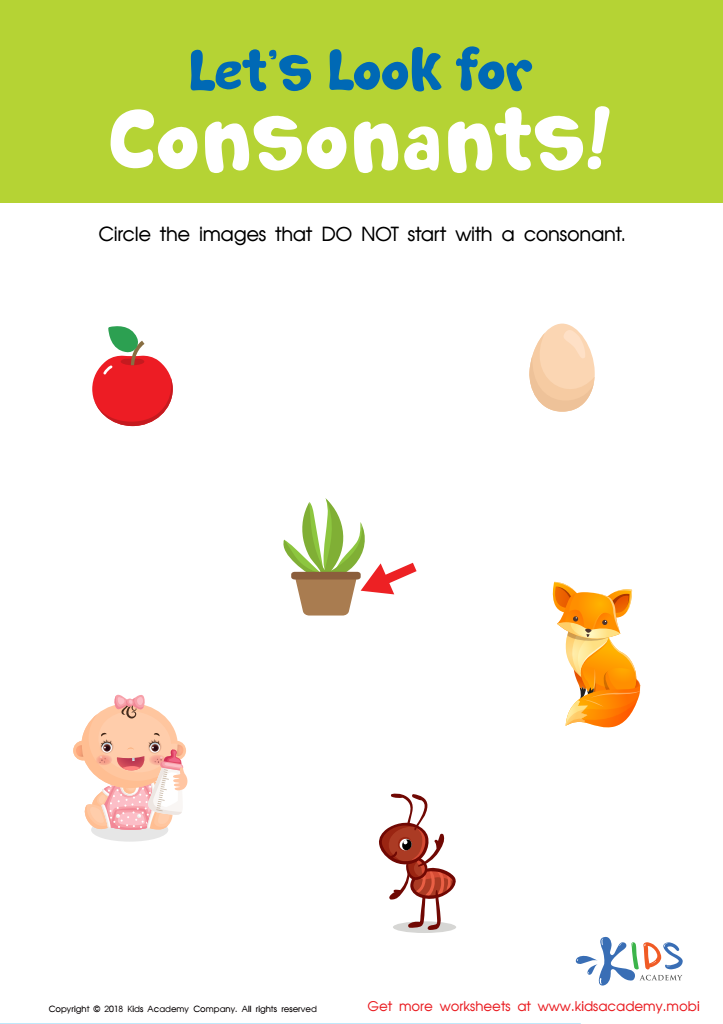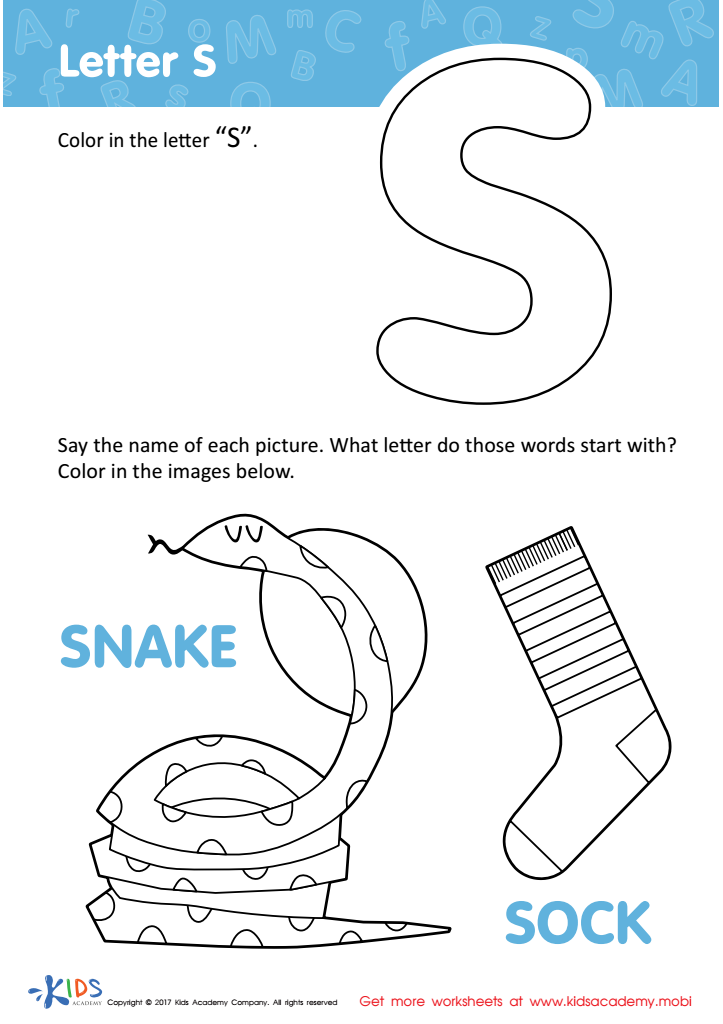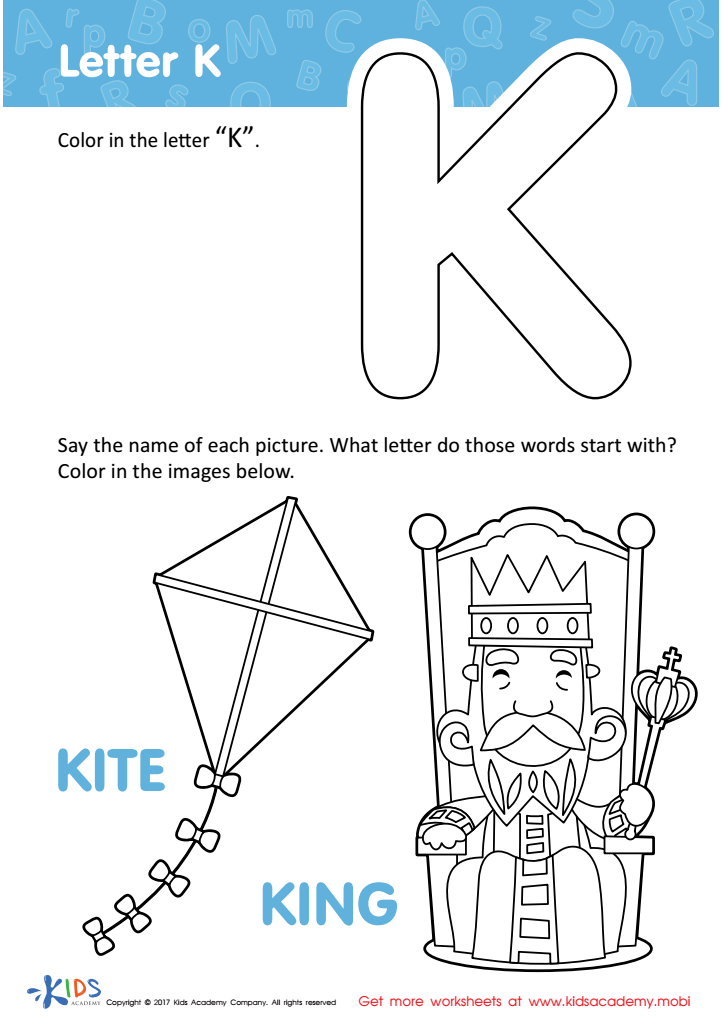Phonics enhancement Worksheets for Ages 3-5
3 filtered results
-
From - To
Discover an engaging collection of Phonics Enhancement Worksheets designed for children ages 3-5. These interactive worksheets foster early literacy skills through fun activities that introduce essential phonetic concepts. Tailored to support young learners, each worksheet offers a variety of exercises aimed at improving letter recognition, sound identification, and word blending. Perfect for both classroom settings and at-home learning, our resources promote a strong foundation in reading readiness. Encourage your child's love for learning while honing their phonics skills with our expertly crafted, colorful, and stimulating worksheets. Start the phonics journey today and watch your little ones thrive in their literacy adventure!


Let's Look for Consonants Worksheet


Letter S Coloring Sheet


Letter K Coloring Sheet
Phonics enhancement for children ages 3-5 is crucial in laying a solid foundation for literacy skills. At this early stage, children are developing essential language abilities, and introducing phonics can significantly impact their reading and writing proficiency later on. Phonics teaches children the relationship between letters and their sounds, enabling them to decode words and improve their reading fluency.
Understanding phonics helps foster a love for reading, enhancing vocabulary and comprehension skills. When children grasp how to sound out words, they become more confident readers, which encourages them to explore books and engage more with language.
Moreover, early phonics instruction can aid in preventing future literacy difficulties. Research indicates that children who receive effective phonics training are less likely to struggle with reading as they progress through school. Teachers and parents play a pivotal role in reinforcing these skills through play-based activities and engaging lessons.
Ultimately, by prioritizing phonics enhancement, parents and teachers not only support essential language development but also cultivate a lifelong love of reading, setting children up for academic success and fostering their overall cognitive skills. Ensuring that children have strong phonics foundations is an investment in their future.
 Assign to My Students
Assign to My Students







.jpg)











